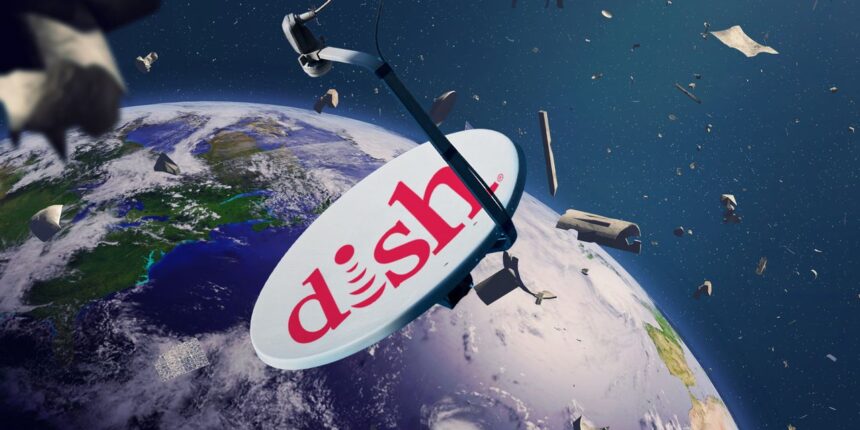Dish Network Corp. has become the first company to face an enforcement action for littering in outer space.
The Federal Communications Commission said it’s fining the pay-TV and satellite-technology company $150,000 for failing to properly de-orbit its EchoStar-7 satellite.
EchoStar, which started life as a satellite-TV equipment distributor, became Dish Network in 2008 and spun off its technology unit as EchoStar. Both companies were founded by billionaire entrepreneur Charles Ergen, who successfully pushed Dish
DISH,
to merge with EchoStar in a deal unveiled in August.
The FCC found that the company retired the EchoStar-7 satellite last year by leaving it to float in orbit in a location well below the elevation required by the terms of its license. Companies are required to remove such retired equipment out of the path of working satellites.
The company has admitted liability and agreed to the fine and a compliance plan, the regulator said.
“As satellite operations become more prevalent and the space economy accelerates, we must be certain that operators comply with their commitments,” said Loyaan A. Egal, the FCC’s enforcement bureau chief. “This is a breakthrough settlement, making very clear the FCC has strong enforcement authority and capability to enforce its vitally important space-debris rules.”

An artist’s impression from 2011 of the debris field in low-Earth orbit.
Agence France-Presse/Getty Images
Dish launched the EchoStar-7 satellite in 2002 and committed to end the mission at an altitude of 300 kilometers above its operational arc. However, by February 2022, the company realized the satellite had very little propellant left and would not be able to follow its original orbital-debris mitigation plan.
“DISH ultimately retired the satellite at a disposal orbit approximately 122 km above the geostationary arc, well short of the disposal orbit of 300 km specified in its orbital-debris mitigation plan,” the FCC said.
Space debris has become a worry as more objects are being placed into orbit now than ever before, according to the Federation of American Scientists. The list includes spent rocket boosters, as well as active and dead satellites.
In March, NASA released a financial analysis of the subject and how it might be remediated, finding there may be as many as 170 million pieces of debris in orbit.
“Debris increases the costs of space operations by requiring efforts to shield against or maneuver around it, threatens the safety of astronauts and satellites, limits the ability to launch spacecraft, and may eventually make entire orbits unusable,” the report found.
Earlier this year, the International Space Station was forced to maneuver around debris to avoid colliding with it, according to a May report from the FAS.
Dish’s stock was down 9% Tuesday and has fallen 64% in the year to date, while the S&P 500
SPX
has gained 10%.








